Anthony Albanese isn’t the first PM to lie to us, and he won’t be the last
I would not be hailing Albanese’s tax double-dealing a roaring success just yet. What we do know is that the combination of deceit and incompetence is fatal. Just ask Julia Gillard.
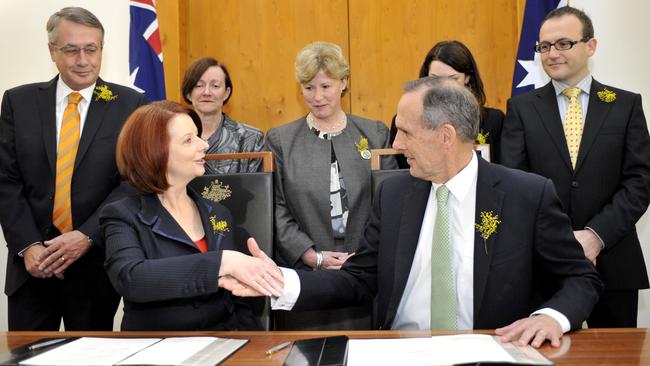
Do not judge me – however many years this reality show has been running, I have never seen an episode, only snippets here and there, and I thought I should check it out. Think of it as social research.
Straight up I saw a handsome young bloke telling an older woman that a previous partner had cheated on him, and that “trust issues” were always going to be a challenge for him in the future. Great, 20 seconds of MAFS and this bloke had taken me straight back to politics. Voters, too, have been cheated so often and so blatantly they now confront serious trust issues.
Anyone who has been on the roll for more than an election cycle or two will have been in an abusive relationship with someone they entrusted with their vote. Could it be that trust anxiety runs so deep now that most voters no longer believe politicians? And if they do not expect any better, will they even bother punishing politicians for betrayal?
I doubt it has gotten that bad yet. In my view voters value competence above all else, so good outcomes should overwhelm voter disenchantment with broken promises. The problem is that broken promises are far more prevalent than competent government.
Anthony Albanese’s breach of faith on the stage three tax cuts ranks up there with the most blatant in recent history. He might need to display a level of competence not seen since the Howard years to be forgiven.
This week’s Newspoll tends to suggest the electorate strongly prefers cash in hand over rigid adherence to a political commitment. That sanguine attitude might disappear when voters realise their $15 or $20 a week is quickly swallowed by the effects of Labor’s other broken promises – remember, they were going to reduce power bills and keep interest rates lower too.
We will see. But I would not be hailing Albanese’s tax double-dealing a roaring success just yet. To start with, it is five months before anyone sees a dollar, and a lot will happen in the interim. What we do know is that the combination of deceit and incompetence is fatal. Just ask Julia Gillard.
Her introduction of a carbon tax after promising never to do so stands out as the gold standard broken promise. Yet even that was not straightforward.
Gillard could have argued that her emissions trading scheme did not deliver a tax but put a price on carbon, with the price fixed initially before the market took over. This hair-splitting probably was worth employing, but she decided right from the outset not to bother.
“Oh look, I’m happy to use the word tax,” she told the ABC early on. Game. Set. Match.
Gillard later regretted that decision. In the cut and thrust of politics it can be better to defend yourself on semantics rather than confess blatant deception.
None of this can be divorced from the fact that Gillard ran a hopeless government, losing control of our borders and government spending. We can never be sure about the role her broken promise played in her plunging support.
Still, remember she only got the prime ministership because of a Kevin Rudd breach of trust. When he ditched his Carbon Pollution Reduction Scheme, rather than taking it to a double dissolution election, he effectively abandoned his promise to tackle the “greatest scientific, economic and moral” challenge of our time. That is when the public, and the Labor caucus, dropped off Rudd. And Gillard swooped.
This history makes Tony Abbott’s transgressions all the harder to comprehend. It is not as if he did not understand the need to break this cycle.
I was in the room when he declared in his 2013 victory speech that he would deliver “a government that says what it means and means what it says, a government of no surprises and no excuses”.
It was reassuring. Just what voters wanted to hear. But it was not long before he broke promises.
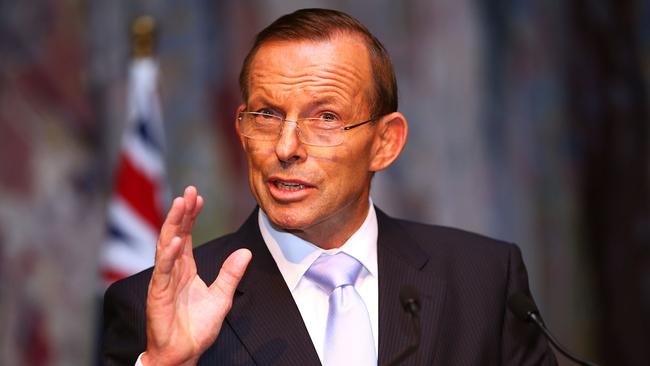
Some deny this charge, arguing Abbott reduced the growth in spending rather than reduced allocations in the crucial areas where he had promised there would be no cuts. As I suggested for Gillard, these debating points might have been useful in government at the time, but they are futile now.
More to the point, and more telling with his base, was Abbott’s introduction of a new tax, a so-called debt levy. This came after he repeatedly promised, “What you’ll get under us are tax cuts without new taxes.”
The debt levy was a clear broken promise that attacked his conservative base. And perhaps more significantly, it made a mockery of his pledge to say what he means and mean what he says.
(Do not get me wrong, Malcolm Turnbull’s undermining and political assassination of Abbott was reprehensible. But those who pretend Abbott did nothing to make himself vulnerable are in denial.)
Abbott’s government was competent in many areas, such as stopping the boats, negotiating free trade deals, and repealing the carbon tax. But when key elements of his 2014 budget were blocked by the Senate, it created a shambles.
Turnbull capitalised on the dissatisfaction in the electorate and partyroom. Then he promptly dumped his old promise to “never lead a party less committed to action on climate change than I am”. And we wonder why people have trust issues.
Even Scott Morrison’s demise, at least in part, can be attributed to doing what his supporters thought he would not. A Coalition that had almost won in 2010, then won in 2013, 2016 and 2019 with front-and-centre climate policies decidedly more cautious and less activist than Labor, suddenly signed up to net zero by 2050 under Morrison.
Most media did not criticise this volte-face because most journalists are dogmatic on climate. But the conservative base noticed. I am not pretending the tentative relationship between politicians and the truth is a new twist. The sordid history of political lies goes back much further, not just in Australian politics but throughout history, of course. Even 2500 years ago, Plato and Aristotle talked about the “noble lies” necessary for good governance. But none of this excuses Albanese.
His broken promise eclipses Abbott and Morrison on the grounds of centrality, clarity, and repetition. It even puts Gillard and the carbon tax in the shade for the same reasons and because it relates to a specific law and overturning something already in place.
There are comparisons to be made with Paul Keating’s “L.A.W.” tax cuts because what was legislated for taxpayers has been undone and reworked. Keating’s was a lesson in cynicism, legislating tax cuts before an election to weld a promise into a reality, then after the election win getting out the oxy-torch and dismantling it.
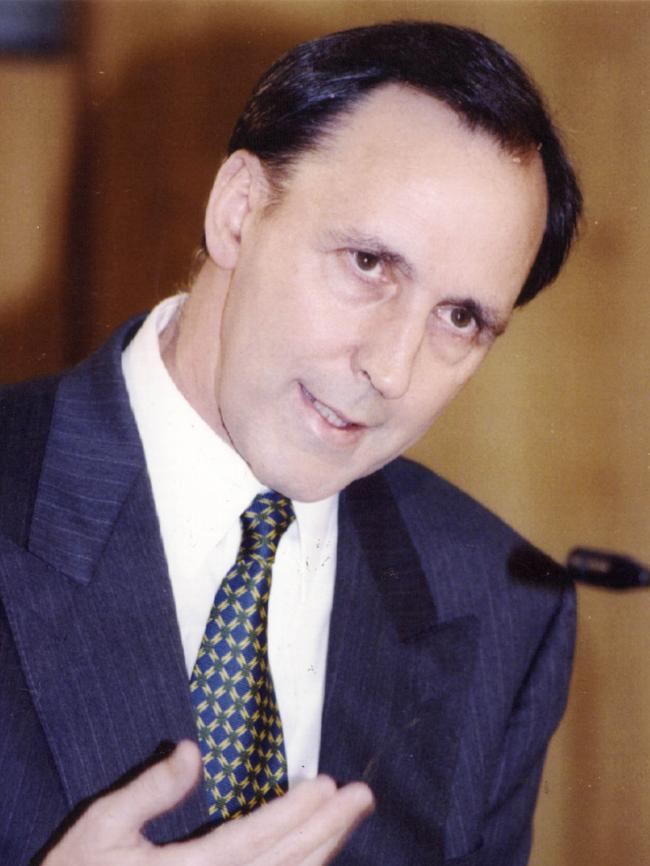
Yet Keating was at least undoing a package of his own making, whereas Albanese and Jim Chalmers have dismantled and reshaped a package the Coalition legislated and Labor repeatedly and explicitly assured voters they would not touch. Albanese pins his hopes on most voters getting more out of his plan than the one he scrapped but this is counter-balanced by the divisive nature of his backflip and the way it leaves our tax scales more complicated and punitive for middle to high-income earners.
This brings into play the rhetorical question about who will ever believe them again, and the real-world retort about whether anyone believed them in the first place. We elect new governments at first sight because we must elect someone, and we can only choose from those on offer. We sometimes live to regret it. Politics is the 24/7 reality television show with real consequences.
Albanese boasted this week that he has not lost a Newspoll since winning government. This was a Turnbullesque invitation to fail his own KPI.
The Prime Minister’s hubris is unwarranted. The Albanese government will need to do a lot right to overcome its broken tax promise, and its failure to live up to pledges on power costs, interest rates and the cost of living.
Albanese starts from a low base. He came to power on a record low primary vote, and he burned a lot of credibility through his inept prosecution of the voice campaign and his refusal to do voters the courtesy of sharing more details.
Despite the euphoria from the government in parliament this week as the Coalition agreed to support their policy reversal, the trust issues between voters and Albanese could already be beyond repair. Labor lost under Bill Shorten in 2019 because it unveiled a radical agenda, so as we feared it looks like they hid their true intentions in 2022 and Albanese is rolling them out now.
Given the low Coalition seat count and the buffer of the teals, it will be difficult for Albanese and Labor to lose the next election. But no election victory is impossible, and Labor could easily be pushed into minority government.
Our national political leadership is like a reality TV show. The characters are so flawed and the escapades so horrible that we cannot stop watching.


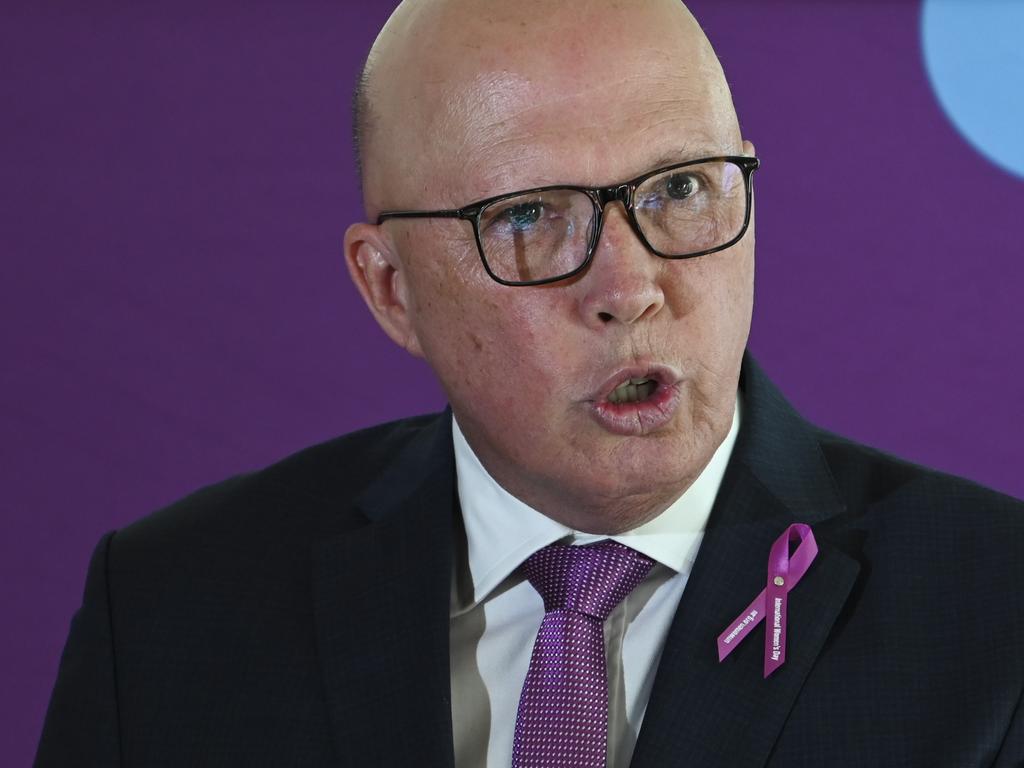
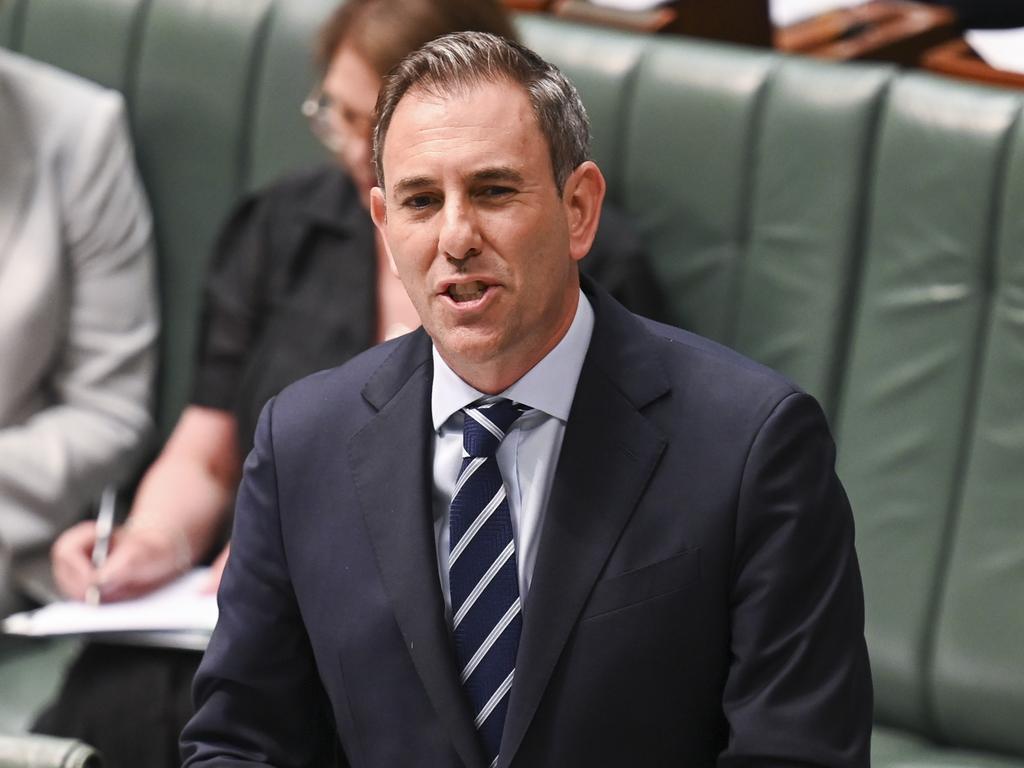
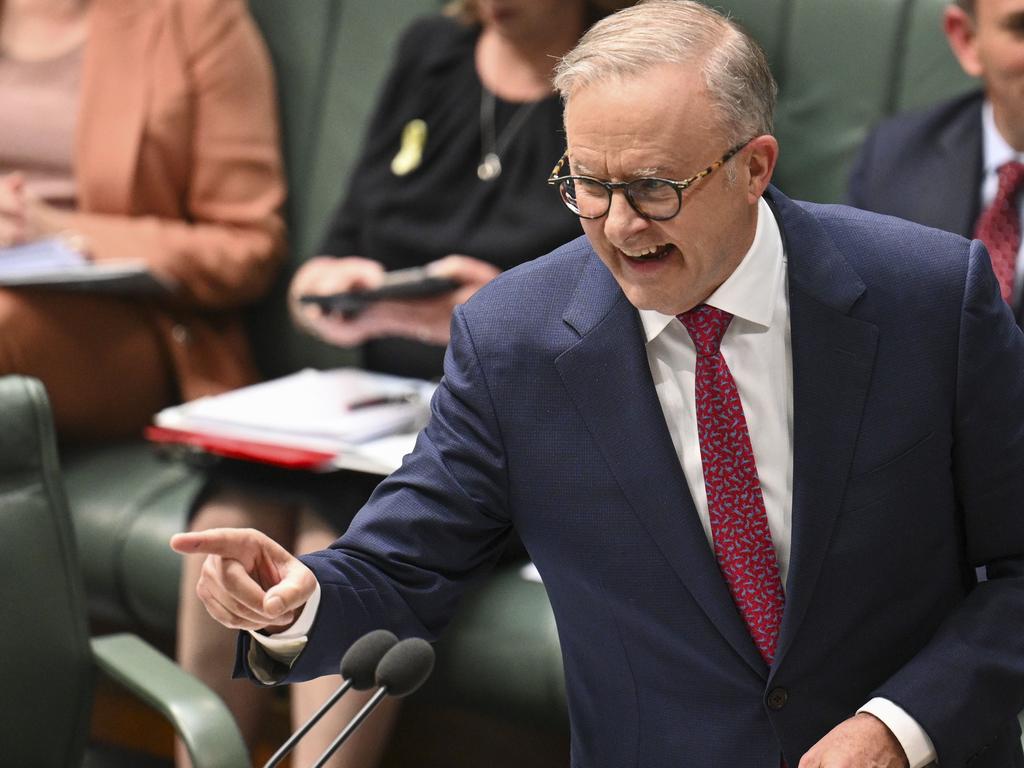
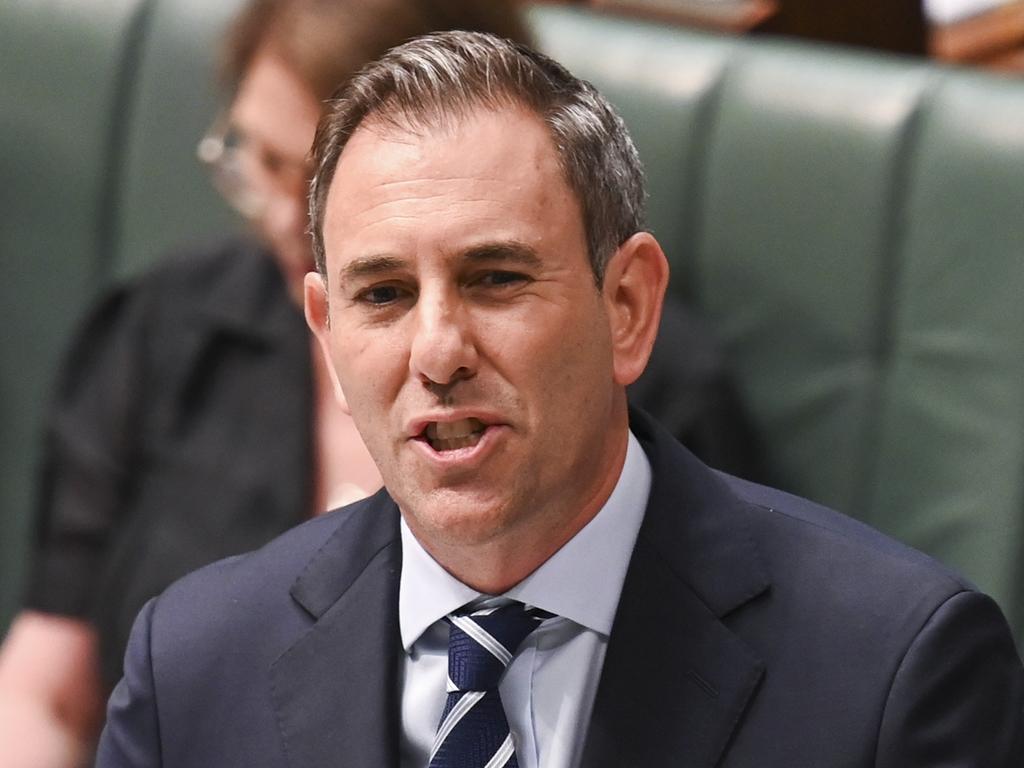


It was Wednesday night, we had cleaned up after dinner, the kids were in bed, and having watched a recording of the news, I was sitting in front of the television mulling over column ideas. As usual my mind was full of politics and political debates so, as a diversion, I flicked on to Married at First Sight.